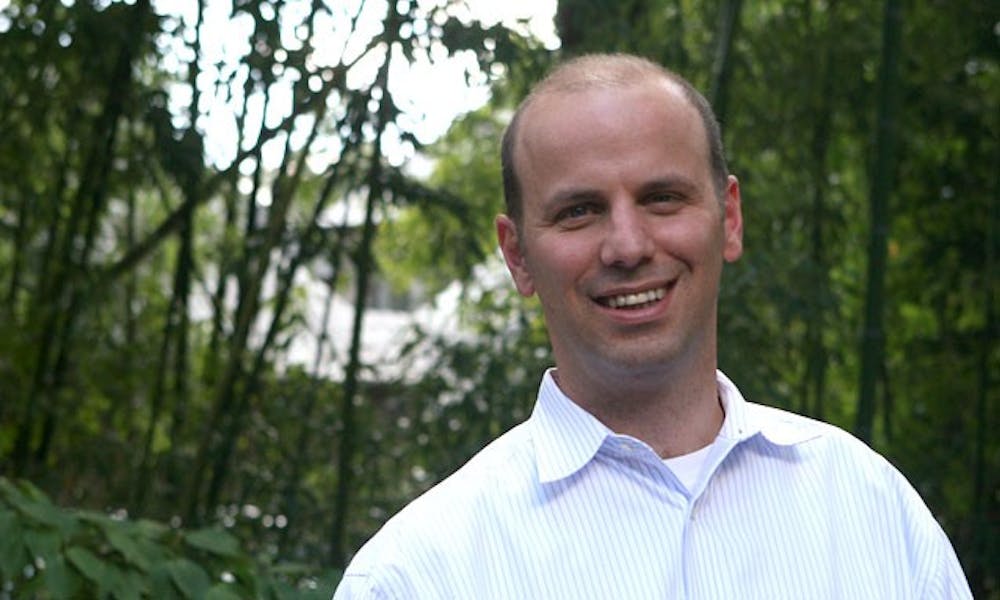Tim Profeta, director of the Nicholas Institute for Environmental Policy Solutions and a senior associate dean, appeared before the U.S. Senate Committee on Agriculture, Nutrition and Forestry Sept. 9. Profeta, who worked as Sen. Joe Lieberman’s (I-Conn.) environmental counsel before coming to Duke, was one of several experts who spoke on legislation proposing a cap-and-trade system for greenhouse gases to help counter global warming.
He discussed the benefits of a market-based approach to controlling greenhouse gas emissions and the risk of market failure. The Chronicle’s Sonia Havele sat down with Profeta to discuss his experience and inquire further about the bill.
The Chronicle: Can you tell me a little about the global warming bill that was being addressed by Congress?
Tim Profeta: We were looking at a very particular area, one substantive topic of that bill. There is a comprehensive bill that has passed the house and on [Sept. 30] will be released in draft in the Senate to address global warming in the United States by requiring mandatory reductions from people who make greenhouse gases between now and 2050 [by] creating a market in those emissions. You can either buy the right to emit or sell this right to emit to somebody else and let them emit the greenhouse gas pollution to the atmosphere. It’s an approach we’ve used to tackle acid rain in the past. It allows government to be kind of responsibly disinterested in how it gets done.... That’s the program, it’s called a cap and trade, which is about the most politically undesirable term out there. What it really is doing is unleashing the power of the private market to drive environmental benefit, in this case greenhouse gas reduction.
TC: How was your experience appearing before Congress?
TP: To come in to serve the role of the witness is interesting. It provided a very direct way to inject what we’ve been working on for months here at Duke into the debate on the question that we had forecasted to be important [that had] become important. It was very interesting because while it remains a controversial political and substantive topic—the topic of how would you build a greenhouse gas market as a financial market—there was a surprising consensus among my panel about the right way to go about it. I think it was valuable in that it showed the legislators that there was pretty much a consensus way to move forward.
TC: So what was the main concern?
TP: Some legislators are reluctant to create a greenhouse gas market because of the failures of the recent past and [they] believe it is not the right time to create a new market.
TC: What is your position on the issue?
TP: The Nicholas Institute doesn’t take positions. We don’t support or oppose anything. We help the decision maker answer questions they are struggling with in a way that controls for potential market failures. However, I think cap and trade could be a very effective way to address greenhouse gases. I have worked on it for a very long time and think it can be implemented very well.
TC: What do you hope you and the Nicholas Institute will accomplish in the future?
TP: The institute aspires to become the first call made by decision makers, be they in the government, private sector or non-private sector, when they struggle with an environmental problem and are seeking counsel on possible solutions. Indirectly, we hope that helps people make better decisions to help us address challenges that face the nation and the world.
Get The Chronicle straight to your inbox
Signup for our weekly newsletter. Cancel at any time.

